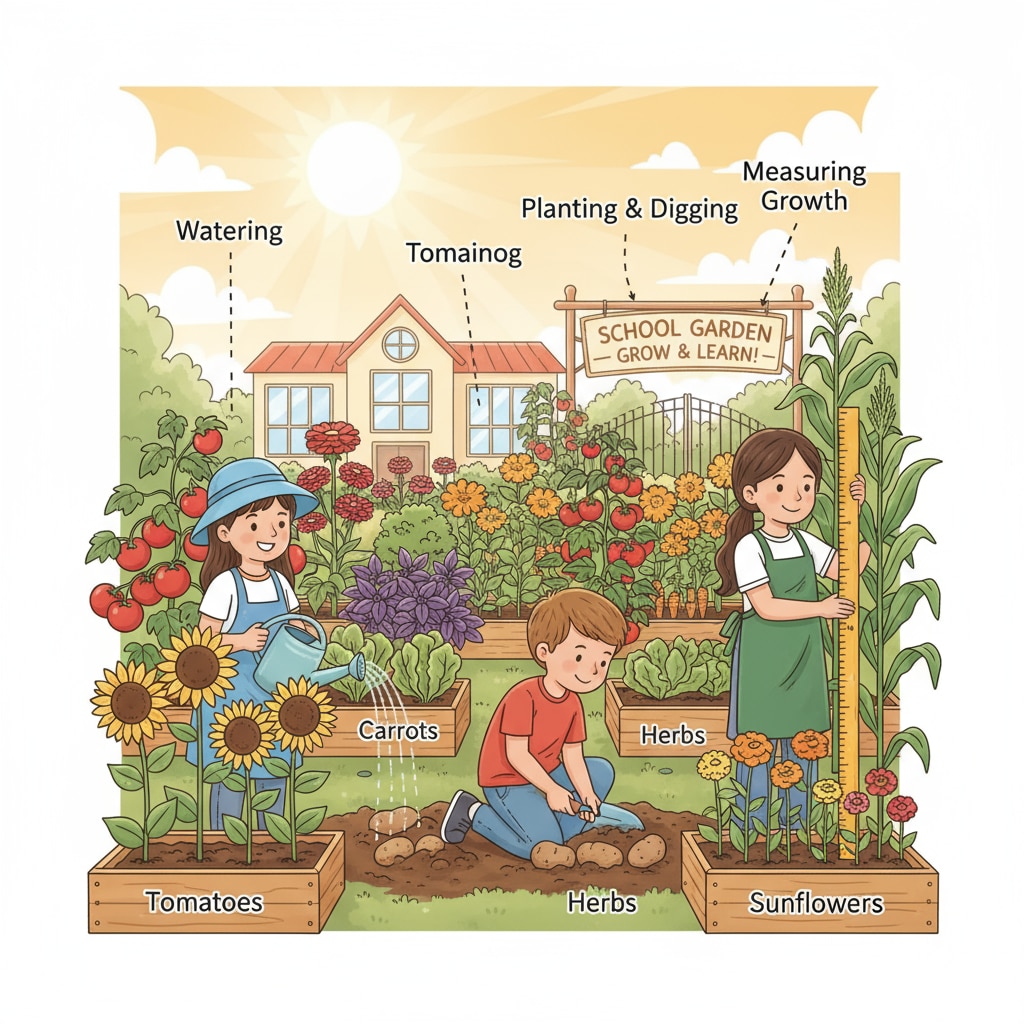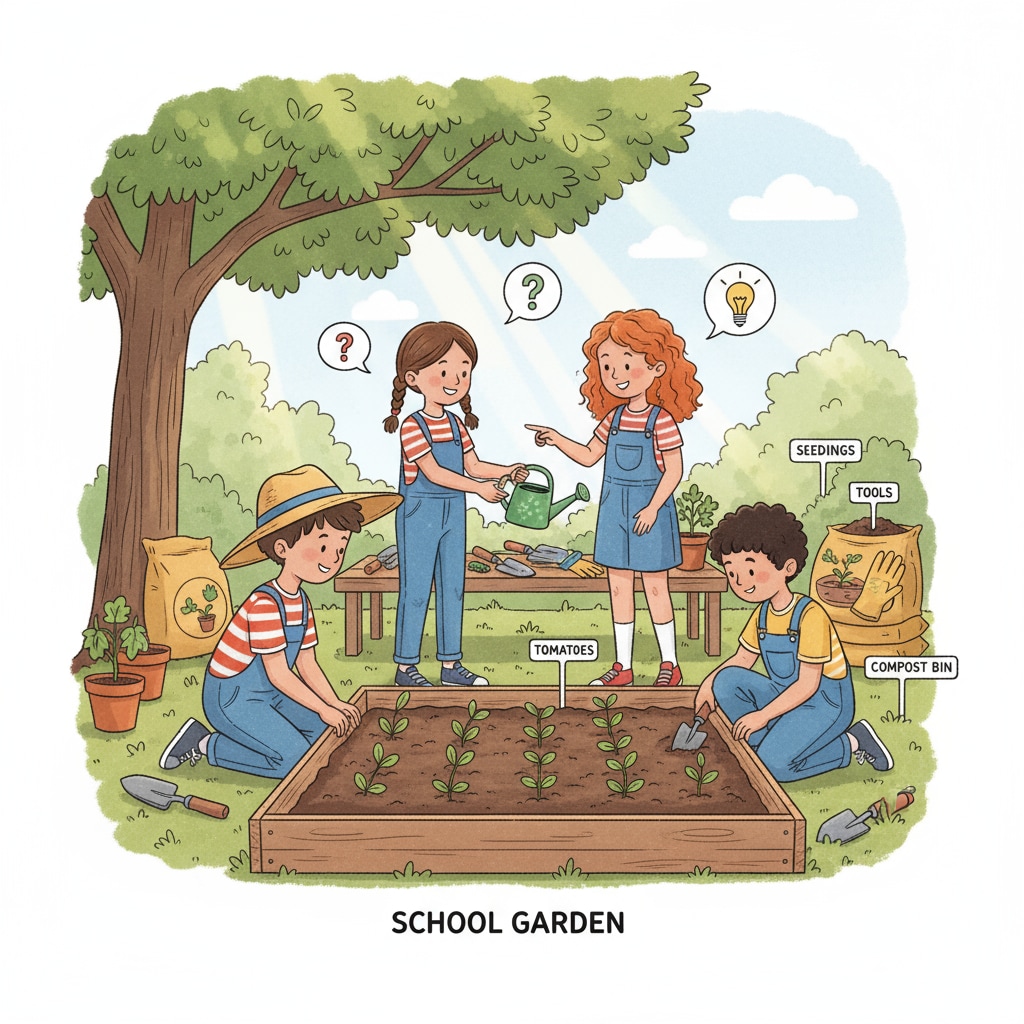School gardens, as innovative educational tools for practical learning, have emerged as dynamic spaces that offer a wealth of benefits to students. These green oases within the school environment are more than just plots of land filled with plants; they are vibrant platforms for holistic learning.

The Academic Advantages of School Gardens
School gardens serve as living laboratories for multiple subjects. In science classes, students can observe plant growth cycles, learn about ecosystems, and conduct hands-on experiments. For example, they can study how different soil types affect plant development. Math concepts like measurement, area calculation, and data collection also come to life when students are involved in tasks such as measuring the size of garden beds or tracking the growth rate of plants. According to Britannica’s education resources, integrating real-world experiences like gardening into academics enhances students’ understanding and retention of knowledge.
Nurturing Social and Emotional Skills
In addition to academic gains, school gardens play a crucial role in developing students’ social and emotional skills. Working together in the garden fosters teamwork, communication, and cooperation. Students learn to share tasks, respect each other’s opinions, and support one another. Moreover, the calming and therapeutic nature of gardening can reduce stress and anxiety among students. Spending time in the garden, surrounded by nature, provides a peaceful retreat from the hustle and bustle of the classroom.

Fostering Healthy Living Habits
School gardens are powerful tools for promoting healthy living. By growing their own fruits and vegetables, students gain a greater appreciation for fresh, nutritious food. They can learn about the importance of a balanced diet and even participate in cooking activities using the produce from the garden. This hands-on experience encourages them to make healthier food choices. As stated in Wikipedia’s education page, such practical exposure to healthy food sources can have a lasting impact on students’ eating habits.
Cultivating Environmental Awareness
Another significant value of school gardens is the cultivation of environmental awareness. Students can learn about sustainable gardening practices, such as composting, rainwater harvesting, and the importance of pollinators. They become more conscious of the environment and their role in protecting it. Through these experiences, students are inspired to become environmental stewards, both within the school and in their broader communities.
Readability guidance: Each section clearly presents a key aspect of school gardens as educational tools. The use of examples and external references adds credibility. Short paragraphs and the inclusion of transition words maintain a smooth flow.


